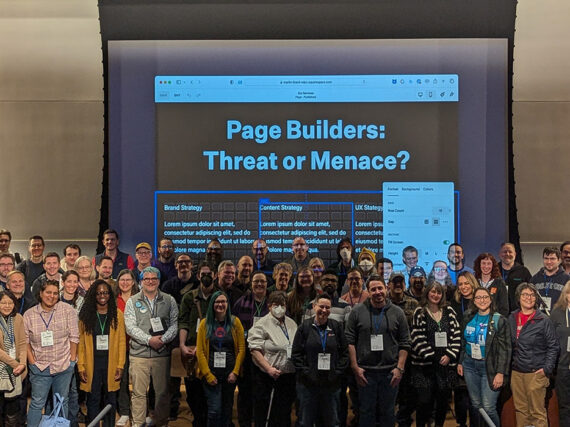Employee training and skills development is an important barometer of professionalism for technology agencies. This is especially true when it comes to Scrum and Drupal certifications. The benefits of getting certified extend to all parties involved.
For employees, the process prompts both the review of old skills and addition of new ones. For vendors, it confirms the skills of its employees. And most of all, certifications provide assurance to clients that a project will be completed with expertise, speed, and efficiency.
Scrum Certifications
In 2017, GovWebworks (GWW) added three new Scrum Alliance certified Scrum Masters to the growing list of previously certified staffers. As a result, we now have a total of nine employees with ScrumMaster and Scrum Product Owner certifications, listed below.
- Sarah Crossman – Certified ScrumMaster, July 2017
- Caroline Casals – Certified ScrumMaster, May 2017
- Hellen Fitzpatrick – Certified ScrumMaster, May 2017
- Cyndy Chaney – Certified ScrumMaster, August 2016
- Todd Merry – Certified ScrumMaster, January 2016
Certified Scrum Product Owner, September 2015 - Alison Schestopol – Certified Scrum Product Owner, January 2016
Certified ScrumMaster, October 2014 - John Gordon – Certified ScrumMaster,, August 2015
Certified Scrum Product Owner, August 2015 - Kevin Ferguson – Certified Scrum Product Owner, September 2015
Certified ScrumMaster, October 2014 - Dana Lesniak – Certified ScrumMaster, August 2014
What’s the difference between the two titles? During a Scrum project, a Scrum Product Owner creates the prioritized list of backlog items to be completed during a two- to four-week sprint time period. The ScrumMaster, on the other hand, is responsible for keeping the team focused on the defined goals during a sprint.
In some cases, a product manager serves both roles, Product Owner and ScrumMaster. In situations where both the client and vendor are trained in Scrum, the Product Owner may be provided by the client, while the ScrumMaster is provided by the vendor. The two roles work in unison with the team to maintain Scrum principles and keep the project on track.
Why Scrum?
Scrum is the world’s leading agile development methodology for completing complex technology projects. Conceived by Jeff Sutherland in 1993, the name Scrum is based on a 1986 article by Takeuchi and Nonaka that defined this new approach to project management in terms of the rugby scrum formation:
“Under the rugby approach, the product development process emerges from the constant interaction of a hand-picked, multidisciplinary team whose members work together from start to finish. Rather than moving in defined, highly structured stages, the process is born out of the team members’ interplay.”
The Scrum Alliance was formed in 2001 to inspire, enable, and guide “the use of Scrum and other Agile methods to create effective and collaborative work environments.” They offer certifications to help team members get up to speed quickly so as to provide immediate impact on projects.
Our Scum Alliance certified employees gain increased confidence and expertise from the certification process, and our clients reap the benefits. The result is a transparent and incremental approach to project management that delivers the best results for a budget.
“The ScrumMaster certification helped formalize what I had learned on the job,” says recently certified ScrumMaster Sarah Crossman, a GWW project manager. “Every agile software company runs their own ‘flavor’ of Scrum so it showed me what we were doing well and could do better, and clarified the founding principles of Scrum.”
“The certification also lets clients know they can trust us to defend and maintain the agile framework on their project. They can expect to be involved every step of the way, making it easy to course-correct immediately and save on costly do overs.”
Acquia Certifications
This year also saw the addition to our team of a new Acquia Drupal Site Builder and Drupal 8 Developer. In March, Caroline Casals and Liem Khuu took the tests and added their certifications to that of Joe Cardella, who received his Drupal Developer Certification in July 2016.
Why Acquia?
Acquia Certification is a verification program for Drupal and the Acquia Platform, which is an enterprise cloud-based and digital experience management solution used by many government agencies. The certification helps Drupal professionals to validate skills and knowledge of Drupal and Acquia products and services. It also provides a benchmark to measure the level of skills a vendor can provide to a client.
Furthermore, Acquia claims that the certification reduces risk. This is because developers meet a standard skill set which helps to ensure a successful product delivery. Certified teams are also better able to keep current with the latest Drupal and Acquia developments and tasks.
“Building Drupal sites is like making Italian wedding soup – there are as many recipes as chefs who create them,” says GWW project coordinator, Caroline Casals, who recently passed the Acquia Drupal Site Builder certification test.
“Getting certified and experiencing the kinds of questions and challenges that Acquia asks of participants provided a great opportunity to check our day-to-day recipe for Drupal development with leaders in the field. It was both gratifying and challenging to take the certification, and I was impressed with the thought behind the test.”
Learn more
- Acquia Certification Program Overview
- Scrum Alliance Certifications
- Contact us to learn more about how we can help with your next web development project







